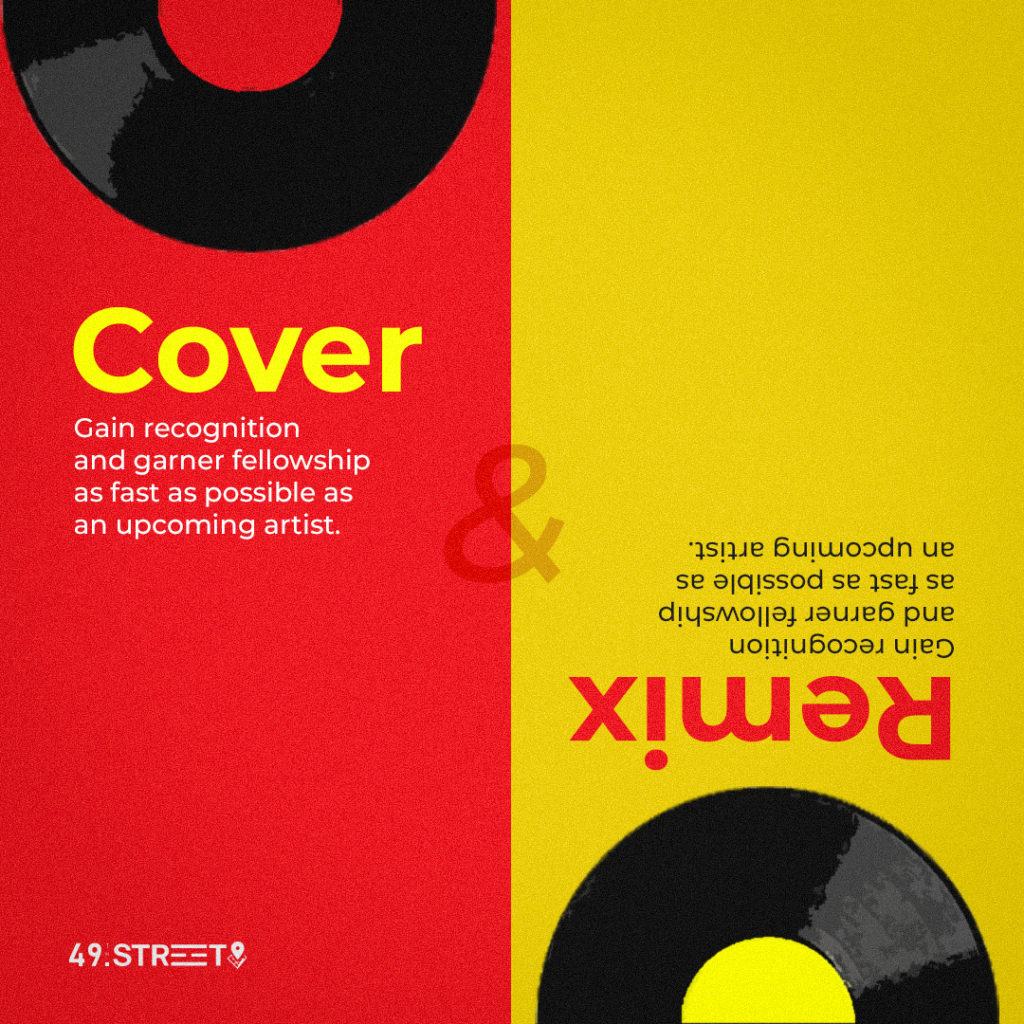For every upcoming artiste the target is the same; gain recognition and garner followership as fast as possible. Getting that done is very tricky and often comes down to luck. But there are two tested and proven ways to increase your chances of getting lucky and that’s by recording and sharing song covers and remixes.
For those who might not know, covers and remixes are not the same and neither are they interchangeable. A song cover is one in which the lyrics, melody and instrumentation of the original song is preserved. In simpler terms, it is when an artist sings the song recorded by someone else word-for-word. The only thing you’re allowed to change is the harmony used in the original. The nature of what makes up a cover means it is only suitable for singers; it gives them room to showcase their powerful voices over sounds already familiar to listeners. Because originality of lyrics is held in the highest regard in the rap game, not many – if any – will pay attention to a rap cover. Now, remixes are a different story. Here, only the instrumentation stays the same. New lyrics are introduced, with only a few lyrics from the original – a popular line or two or perhaps the chorus/hook – making the cut. This is more suitable for rappers as it gives them room to impress with their own lyrics and flows. Singers are not left out of remixes too. Those who feel the need to add their own lyrics can always go this route.
When done well, covers and remixes are opportunities for upcoming artists to get attention. People are more likely to watch a video of a popular song cover or remix than one of the unknown songs released by the upcoming act. This common fact has led to emerging artists flooding social media with their video performances in hopes of having a career-propelling breakthrough moment.
What do song covers/remixes mean to the average upcoming artist?
Posting video covers are a way to reach a wider audience. And if the song cover is on a social media platform, as it frequently is, there is a chance that the original artist would see and acknowledge it.
Song covers are relatively straightforward. Making them, in most cases, is not as time-consuming as making an original song and production work is definitely not as intense. Many artists in today’s industry owe their emergence to covers that were discovered by label owners. Take Mavins for example, who signed Johnny Drille and Ayra Starr off cover performances posted on Instagram. It’s also a way to experiment with sounds for artists who are yet to discover theirs.
Doing a remake, or a remix if you will, of a song, is tricky. Results are flip of the coin – it could be either so good that everyone would want to see it or so terrible that no one would want to. If it’s good, it could open doors that would have otherwise stayed closed or have taken longer to open, just ask Joeboy.
Some artists infuse another layer of creativity and effect the genre changes on their remixes by making a fast song slower-paced or speeding up a slower song. An artist could also add a rap verse to a vocal-based song or add a vocal verse to a rap song.
The practice of covering and remixing has been in the African music industry for a while and with more and more upcoming artists gaining recognition and record deals through them, it isn’t stopping anytime soon.

